Questions about Egypt: The Definitive Guide
A small group tour to explore what remains of ancient Egypt. Visit Cairo, Luxor and the valley of the King and Queen plus Alexandria. A tour for senior and mature travellers.
13 Aug 19 · 2 mins read
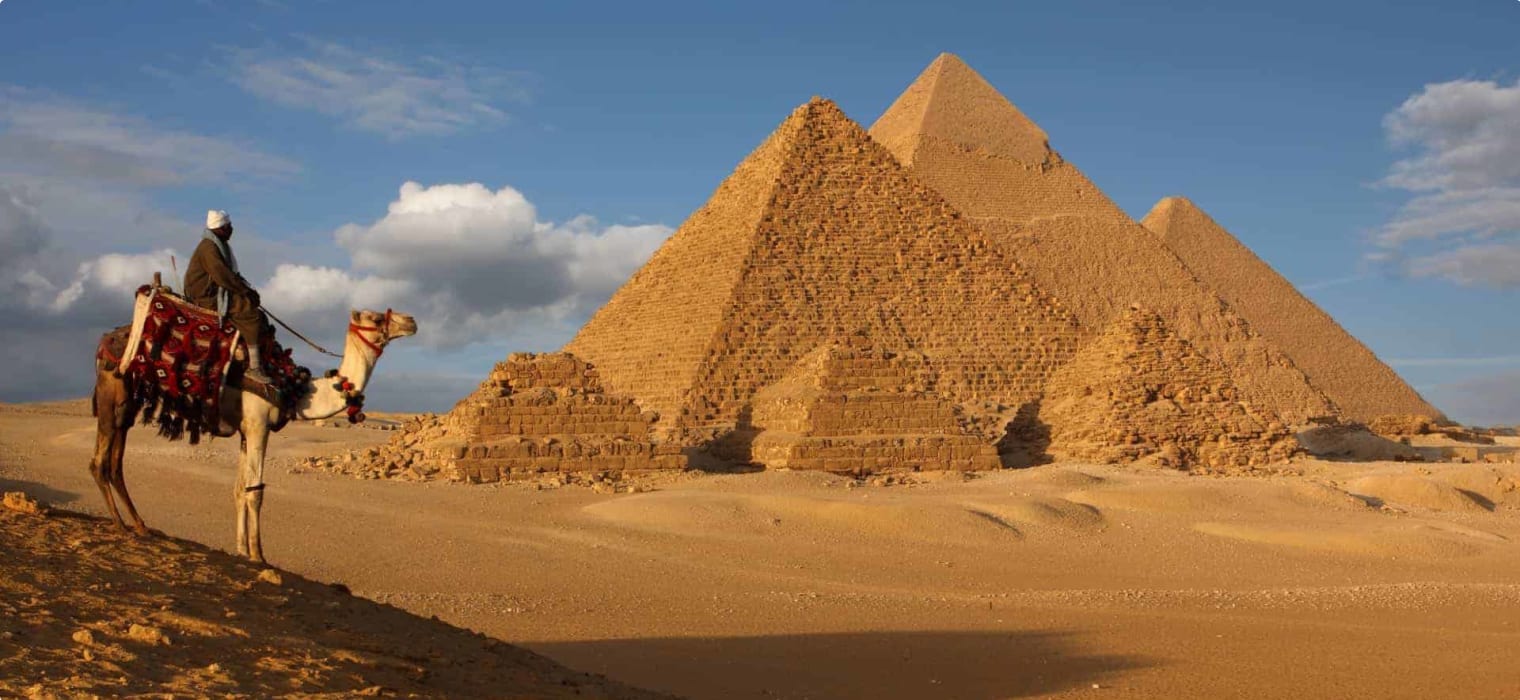
Questions about Egypt for senior travellers.
Odyssey Traveller specialises in crafting unforgettable experiences for senior and mature-aged travellers seeking to learn whilst travelling either as a couple or as a solo traveller. Providing adventure and educational programs to escorted small group tours since 1983. Odyssey has built up a reasonable knowledge bank to answer questions about Egypt that travellers are likely to ask, as they make their plans to tour independently, or with us as part of a small group tour. We hope that this list of frequently asked questions and the answers we provide will help you with planning your next holiday.
Read on, but please do not hesitate to contact us via the website, or through email or chat if you have more questions about Egypt or our other tours.
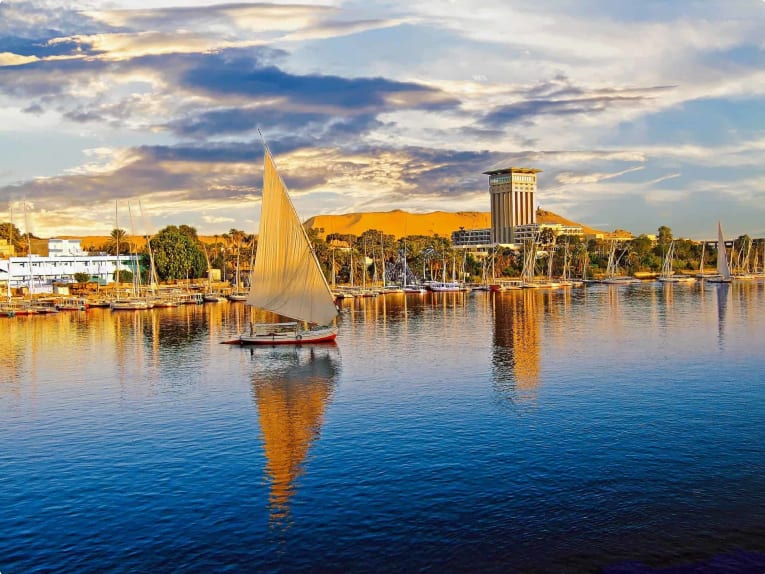
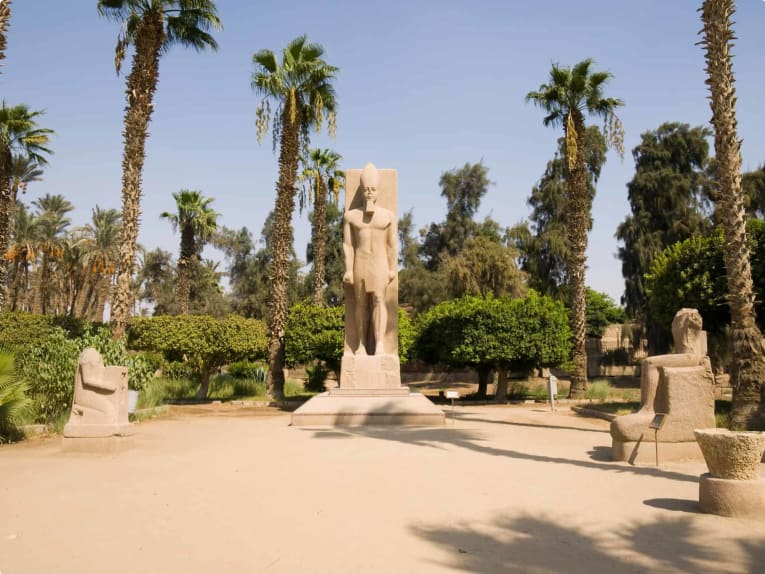
FAQs
Where is Egypt located?
Egypt is located in the northeast corner of the African continent.
It shares borders with Libya (west), Sudan (south), and Israel (northeast) and has two coastlines–the Mediterranean coastline in the north and the longer Red Sea and Gulf of Aqaba coastline in the east. The river Nile flowing in its heartland is the longest river in Africa.
How did Egypt gets its name?
Egypt got its name from the Greek translation of one of the names of its ancient capital, Memphis.
The original site of Egypt’s ancient capital is located 24 kilometres (15 miles) southwest of modern-day Cairo. Now largely in ruins, Memphis used to be a bustling city founded, according to tradition, in the 3rd millennium BC by Menes, the legendary king who first united the two prehistoric kingdoms of Upper and Lower Egypt.
The name “Memphis” is a Greek version of the Egyptian Men-nefer, which is the name of a pyramid built in honour of the 6th Dynasty King Pepi I. Another term for Memphis, Hut-ka-Ptah (“mansion of the ka of Ptah”; ka means soul and Ptah is the local god of Memphis), translates to Aigyptos in Greek, a name later applied to the country (“Egypt”) as a whole
Why is Egypt considered the most advanced civilisation?
A settlement that would later become Egypt emerged from the fertile and life-giving Nile valley and delta about 5,000 years ago, and for 30 centuries it was the principal civilisation in the ancient Mediterranean. Ancient Egypt’s history, language, religion, and architecture continue to capture the imagination of archaeologists and historians, and has given rise to a specific field of study called “Egyptology”.
Egypt was the site of one of the world’s oldest urban and literate societies. Its wealth, prior to the creation of large empires in the 1st millennium BC, was the greatest of any known state in the ancient Middle East. Its riches was largely derived from its annual crops, thanks to the fertile land near the Nile. High productivity ensured that Egypt had large surpluses that they could store to guard against famine or crop failure.
Egypt cultivated flax, a plant with edible grain, and it held a special place in Egyptian culture, society, and economy, according to Kassia St Clair The Golden Thread (2018, p. 43). Linen was imbued with magical meaning (p. 39). Egyptians used linen to wrap their dead—as can be seen in the excavated tombs of Egyptian mummies—and used it as currency in trade.
Majority of the population was involved in agriculture, and the centralised state mobilised this huge labour force–who otherwise would be idle during the months when the Nile River flooded–to build Egypt’s massive monuments. (Recent discoveries have shown that the pyramids‘ builders were not slaves but paid workers.)
The most recognisable of these monuments was the 146-metre-high Great Pyramid of Giza, which remain standing to this day. It was the largest human-built structure in the world until the Eiffel Tower was erected in 1889.
The symmetry and majesty of the ancient Egyptians’ stonework, inscribed with a pictorial writing system called hieroglyphs, mirrored their belief that their perfect fertile region was a gift from the gods, and therefore should be honoured with these equally perfect monuments.
Modern historians say ancient Egypt had 31 dynasties (with the rulers later called pharaohs, from per aa, “great house” or “great estate”), and these dynasties were divided into several periods or kingdoms. The legendary king Menes was said to be the first ruler of the first dynasty, but there had been rulers before him, lost now to history.
The pyramids of Giza were built during the age of the Old Kingdom (circa 2650–2150 BC). An ancient Egyptian medical text, the Edwin Smith Surgical Papyrus, is considered the oldest known surgical treatise and dates back to the Middle Kingdom (circa 2030–1640 BC)–one of the many testaments to ancient Egypt’s advanced civilisation.
How did Egypt become a country?
Egypt in its modern incarnation as an Arab state had its roots in the Muslim conquests of the 7th century AD.
Let’s look at what happened before this time:
Memphis was destroyed during a siege of invading Assyrians around 680 BC, during what historians call the Late Period.
Assyria collapsed sixty-eight years later, in 612 BC, leaving Egypt independent–but only briefly.
In 525 BC, the Persians took Memphis, putting Egypt under Persian rule for more than a hundred years. When Alexander the Great marched into Egypt with his army composed of Macedonians and Greeks in 332 BC, the Egyptians were on the verge of overthrowing the Persians and welcomed Alexander as a liberator. He took Egypt without a fight and used Memphis as his headquarters. A sizeable Greek population began to call Memphis home.
After Alexander’s death in 323 BC, Egypt came under the reign of the Ptolemaic Dynasty, which ruled the country for three centuries. They didn’t use Memphis as their base, however. Instead, they ruled from the capital city of Alexandria, the port city founded and designed (and named) by the Macedonian conqueror.
The last Ptolemaic ruler was Cleopatra. Cleopatra and Julius Caesar’s teenage son, Caesarion, nominally succeeded his mother to the throne as Ptolemy XV Caesar, but he was executed by Octavian after 11 days. With him died the Ptolemaic Dynasty.
Octavian became Emperor Augustus (“revered”), and Egypt fell under the rule of the Roman Empire. Egypt remained under Roman and Byzantine control for six centuries. The Romans built a city-fortress they called Babylon on the east bank of the Nile River, the site of present-day Cairo.
Muslim forces began venturing out of the Arabian peninsula in the 7th century, bringing down the Sassanid Empire of Persia and capturing Byzantine territory. Babylon fell in December 640. Alexandria was captured in 641, and the whole of Egypt fell under the rule of the Caliphate in 646.
Cairo (from Al-Qāhirah, “The Victorious) was established in 973 by the Fatimid Caliphate originating from what is now Algeria, to serve as the enclave of the Fatimid Caliph.
Egypt reached economic, political, and cultural heights under the Mamluk rulers (1250-1517), and was used as a base of expansion by the Ottomans (1517-1798).
Egypt subsequently fell under French and British occupation, until its independence in 1922. From a constitutional monarchy, it transitioned to a republic in 1952 after decades of unrest.
What is Egypt's capital?
Egypt’s capital city is Cairo, but in 2018, Egyptian President Abdel Fatah al-Sisi laid the first stone of what was to become Egypt’s new capital.
The city is so new it still does not have a name. Currently called the New Administrative Capital or NAC, the area covers 714 square kilometres (roughly the size of Singapore) and will house Egypt’s government and financial district. Thirty-four government districts, including the presidential palace, are expected to move to the new capital by 2020. You can read more in our article here.


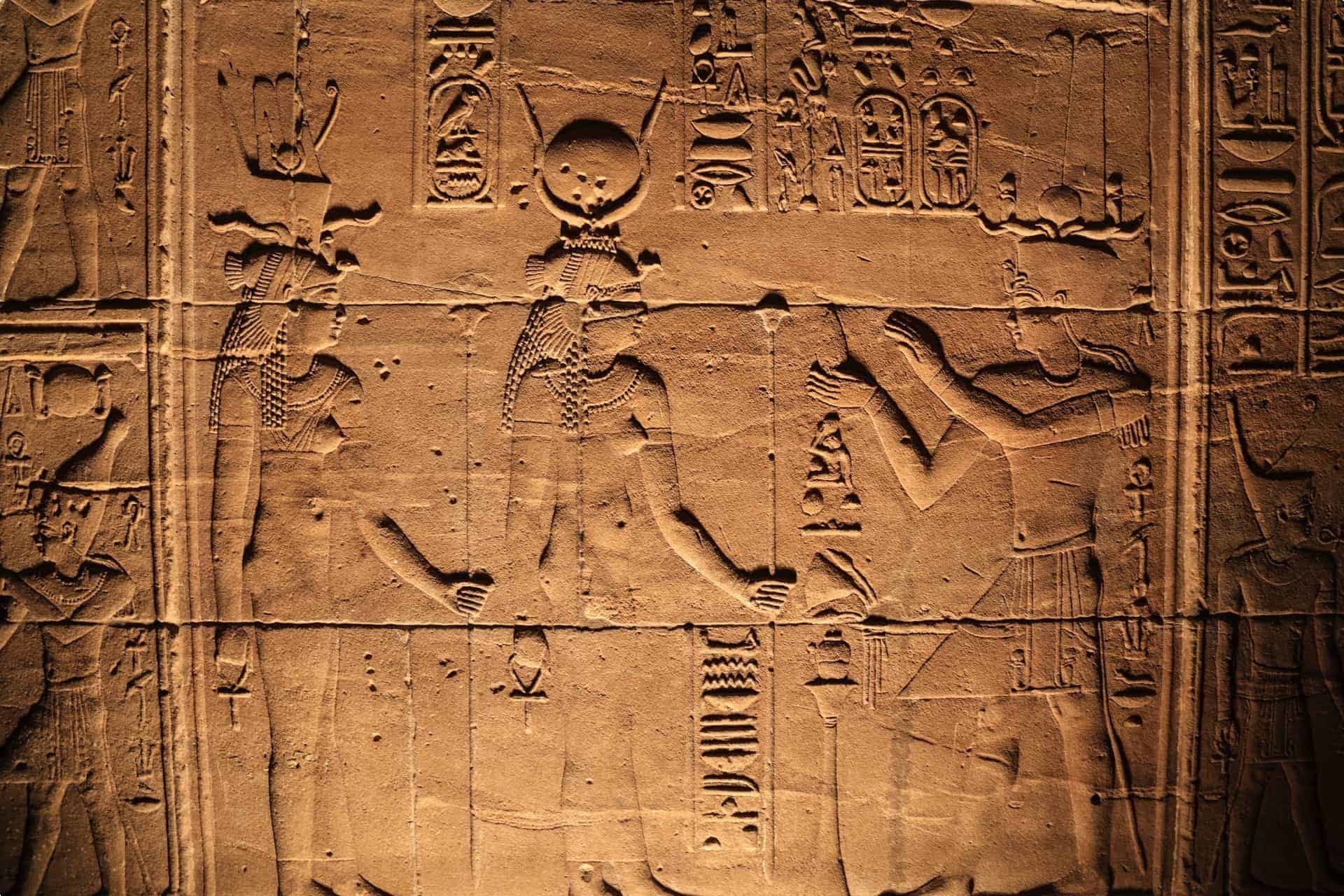

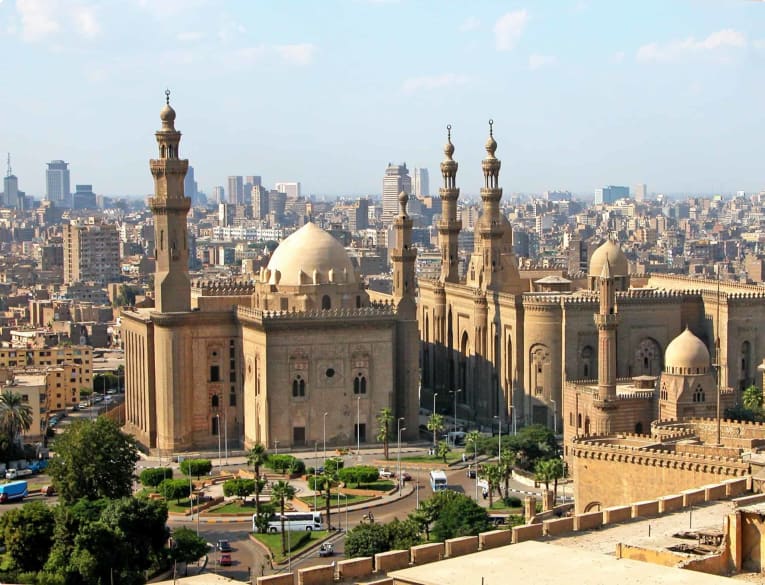
What is Egypt's language?
The official language of Egypt is Arabic. The grammar and syntax of Modern Standard Arabic has remained largely unchanged since the 7th century, but several vernacular dialects have developed through the centuries.
When is the best time to visit Egypt?
Odyssey Traveller’s Egypt tour departs in late January and early November. These covers the best times to visit Egypt–the months of February to April and October to November–in order to avoid the scorching heat and humidity of the country’s desert climate.
Cairo’s average high temperature for February is 21 degrees Celsius, and 25 degrees for November. To compare, Cairo burns at 35 degrees (or more) around June to August.
Can you travel to Egypt without a visa?
Citizens of the countries listed here –including Australia, Canada, the United Kingdom and the United States–are eligible for an electronic visa, and may apply online at www.visa2egypt.gov.eg at least 7 days before departure.
Travellers must have the following documents on arrival:
- Passport valid for at least six months from arrival date
- e-Visa printout
- Travel itinerary
- Supporting letter e.g. letter from company or invitation letter for business/family visits
- Hotel bookings/details about places to visit if going as a tourist
It is always advisable to check with your local consulate prior to travel as visa rules may change.
What currency should I take to Egypt?
The currency is the Egyptian pound (LE), with 200 LE as the highest denomination. You can bring your own currency and just exchange it at currency exchange shops or banks in major towns.
What is Egypt known for?
Egypt is known for its long and fascinating history, and the great monuments and colossal statues left behind after the age of pharaohs.
The Giza pyramids comprise the last remaining wonder of the ancient world and is a must-visit site on your trip to Egypt. From here, make a beeline to the famed Sphinx.
Located on the banks of the Nile is Luxor, the modern name of the ancient Egyptian city of Thebes. Thebes’ ruins are centred around the Temple of Luxor, commissioned by King Amenhotep III of the late 18th dynasty and dedicated to the king of the gods, Amun.
Other Theban sites include the Valley of the Kings, a vast city of the dead where the magnificent tombs of 62 pharaohs have been discovered, and Karnak Temple, whose ancient name Ipet-isut means “the most sacred of places”.
Step a bit forward in time to medieval Cairo at the Khan El-Khalili bazaar, which was established in the 14th century. Shop around for unique souvenirs and sit for a coffee at the oldest cafe in Cairo–the El-Fishawi, established in 1797. One of its known patrons was Egyptian writer Naguib Mahfouz, who won the 1988 Nobel Prize for Literature.
When will the Grand Egyptian Museum open?
The new museum in Cairo, Grand Egyptian Museum, a project announced in 1992 and initially scheduled to open in 2012 (though delayed in part by the “Arab Spring” protests), will be officially open to the public by October 2020. Sitting on 120 acres offering panoramic views of the pyramids of Giza, it will be, as CNN Travel describes, “the largest museum dedicated to a single civilization”. Private tours, costing, according to the Financial Times, $350 per head, allows a select few to see the behind-the-scenes conservation efforts within the museum laboratory, the artefacts from Egyptian antiquities displayed without the glass casing as they are prepared by museum conservators. The new museum will be housing around 100,000 artefacts, 20,000 of which will be on display for the first time, giving the public deeper appreciation of ancient Egyptian history. It will also be the new home of all of King Tutankhamun’s artefacts, including those previously housed in Cairo’s Egyptian Museum. The lobby will feature the 30-foot statue of Ramses II, greeting visitors as they enter the vast structure. This will definitely be one of the highlights of Egypt.
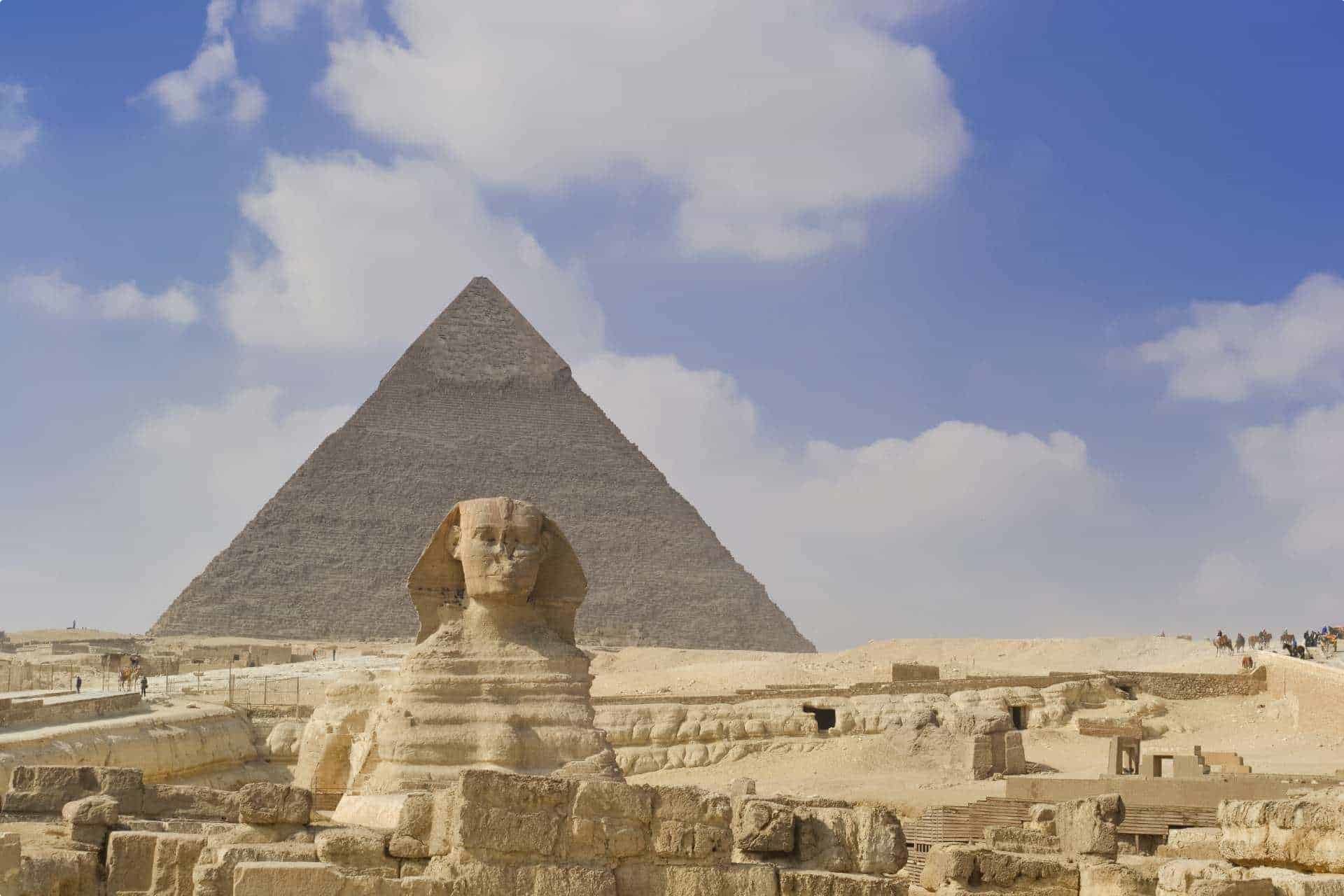

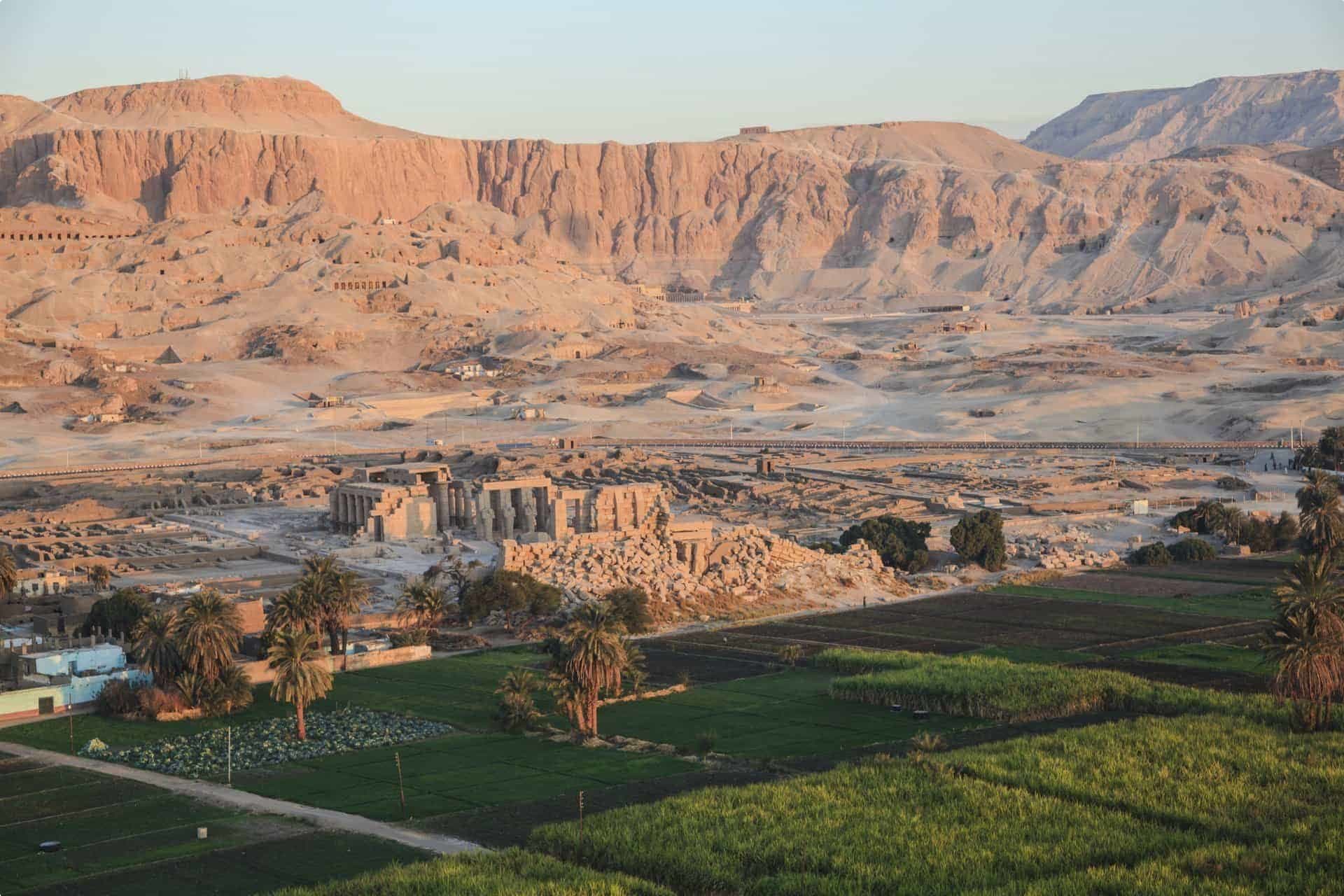
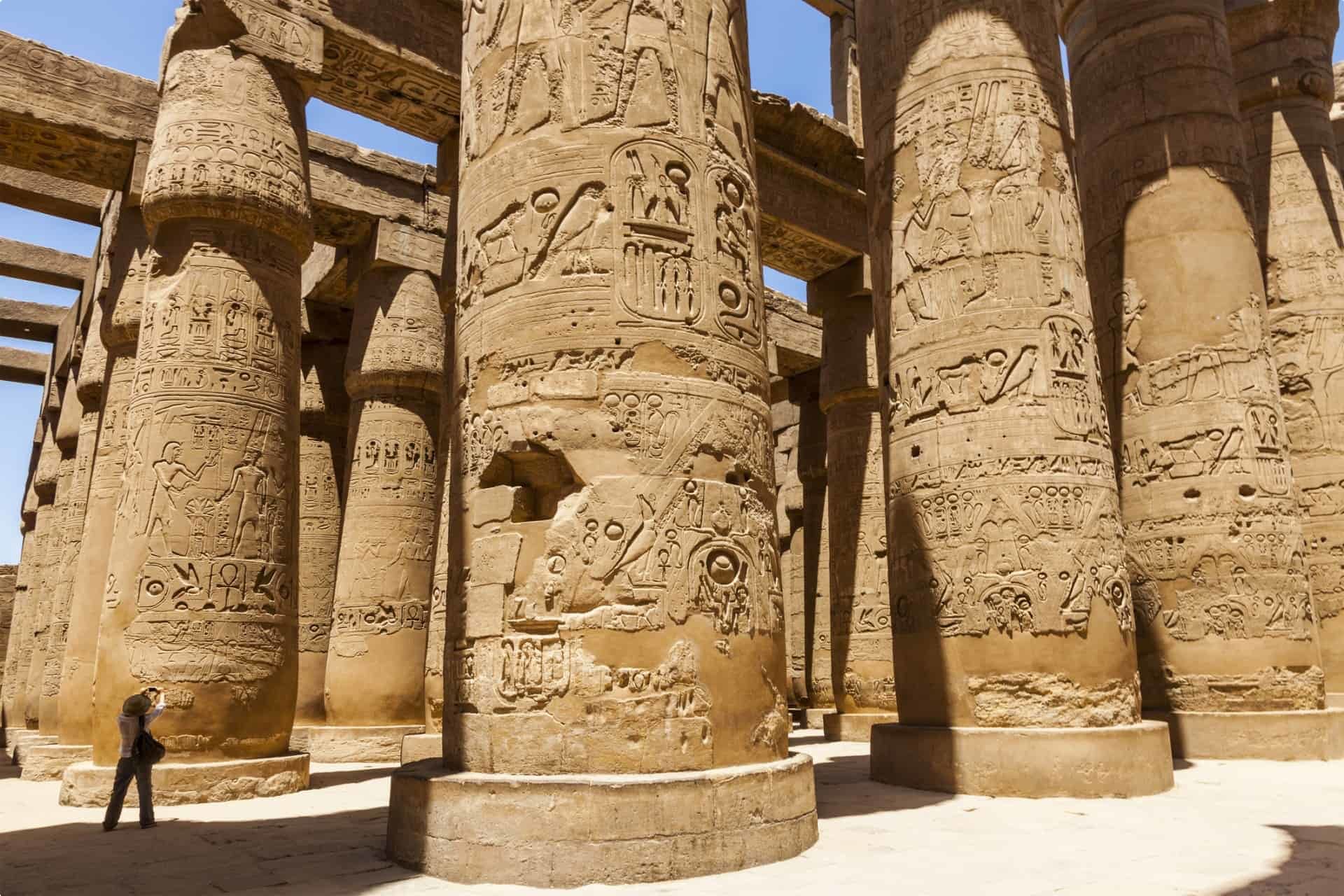
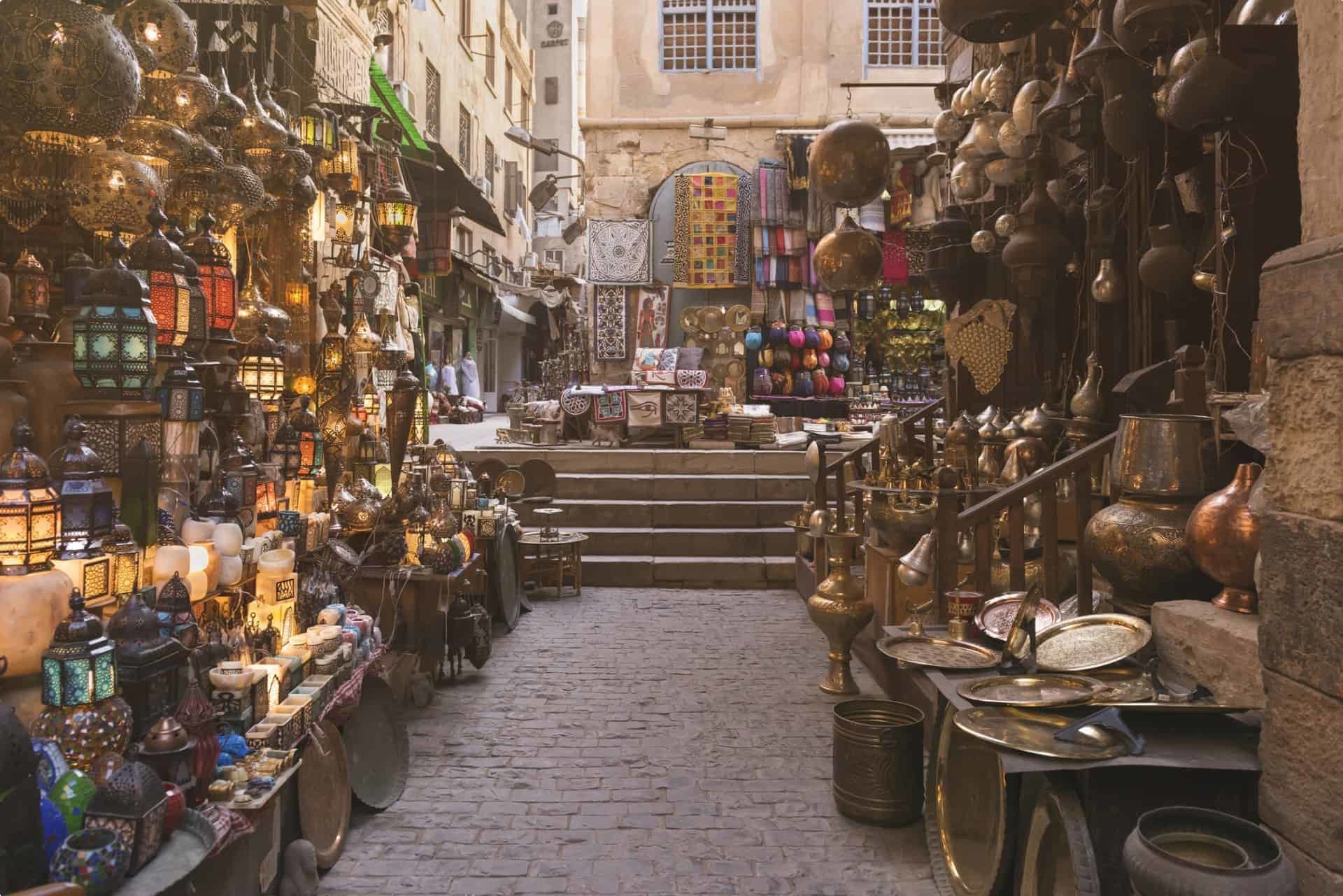
These are just a few of the places to explore in Egypt. If you want to learn more, join us on our small group tours of Egypt — simply click through to see the full itinerary and sign up!
These are just a few of the places to explore in Egypt. If you want to learn more, join us on our small group tours of Egypt — simply click through to see the full itinerary and sign up!
This small group tour focuses on the history and culture of ancient Egypt, designed especially for mature-aged and senior travellers. Other tour operators or tour companies may simply survey the archaeological sites such as the Luxor temple and the Giza pyramids. Our Egypt tour, however, also visits contemporary feats such as the Aswan Dam and lets us witness landmarks of the contemporary Egyptian experience, such as Tahrir Square.
Visit Egypt with Odyssey Traveller on these escorted tours as we travel across the desert from Luxor to Aswan and cruise down the Nile River, learning more about the developments during Egyptian antiquities.
If you have any enquiries regarding this or any other tour, please call or send an email.
The encircled numbers on the map below refer to the number of nights spent in each destination, with green indicating the starting point, and the red circle the end point.
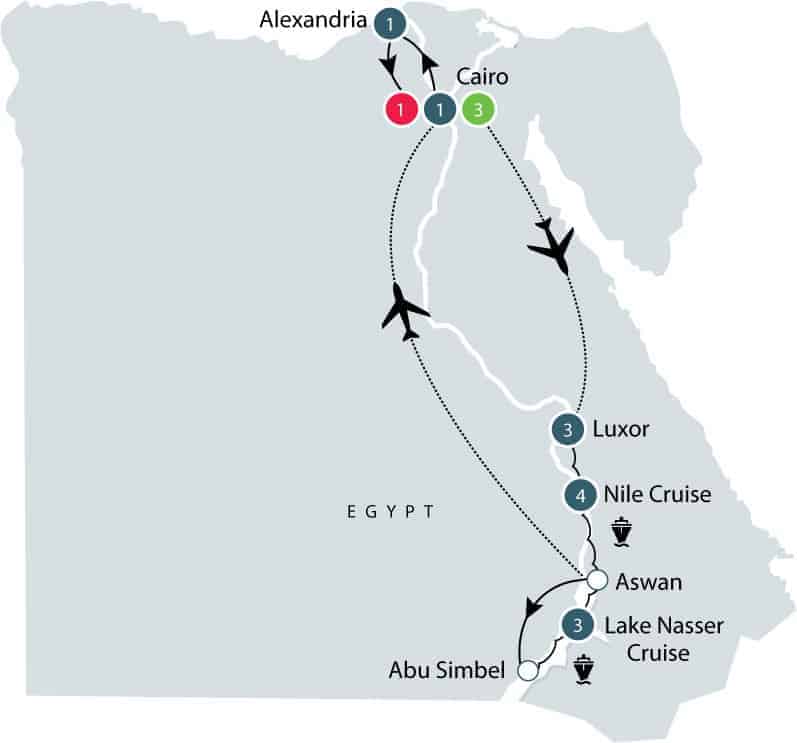
Related Tours
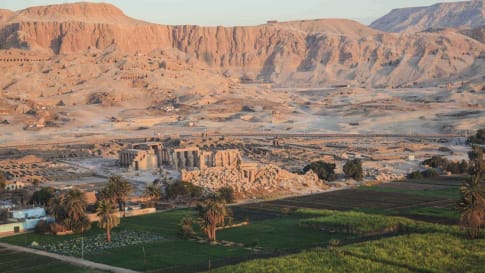
18 days
Nov, JanEgypt tour: escorted small group history & cultural tour of Egypt
Visiting Egypt
Our small group program for senior and mature couples and solo travelers takes us to contemporary feats such as the Aswan Dam and also to current crucibles of the Egyptian experience such as Tahrir Square. Proof, were it needed, that Egypt’s role as the pivot of civilisation is far from ended. There is the opportunity to visit our Morocco, Jordan or Iran tours before embarking on this tour of Egypt.
From A$12,950 AUD
View Tour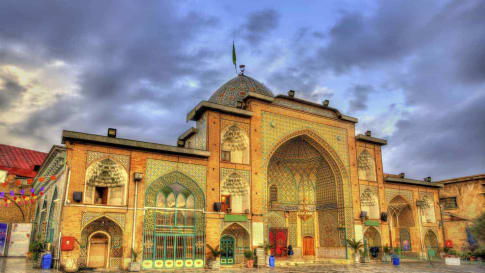
17 days
Sep, Nov, AprIran Culture and History Escorted Small Group Tour for seniors
Visiting Iran
Unlike its neighbours to the west and northwest, Iran had not adopted Christianity and it was the explosive spread of Islam and its ready adoption, without the Arabic language or customs, which helped unite the culture and greatly enrich Persian heritage. This small group tour program includes the great cities of Iran, historic sites, mosques, gardens, bazaars and teahouses for couples and solo travellers.
From A$11,825 AUD
View Tour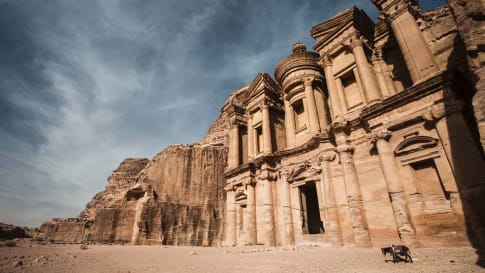
9 days
Jan, OctAncient History of Jordan | Escorted Small Group Tour
Visiting Jordan
Explore Jordan, visiting its capital city, Amman Jordan, the ancient Desert Castles, Petra and the Dead Sea on a small group package tour for mature and senior travellers travelling as a couple or Solo.
From A$6,750 AUD
View Tour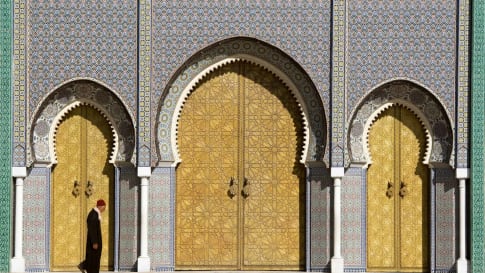
20 days
Apr, Oct, MarMorocco tour for senior travellers
Visiting Morocco
Embark on an unforgettable journey through Morocco: A Gateway to a world of vibrant colors, cultural diversity, and endless wonder. Join our escorted small group tour designed for senior travellers, whether you're a couple or a solo adventurer, and immerse yourself in the captivating allure of Casablanca, Fez, Meknes, Rabat, Marrakech and beyond. Experience the richness of Moroccan traditions and heritage as we explore this enchanting destination.
From A$11,915 AUD
View TourArticles
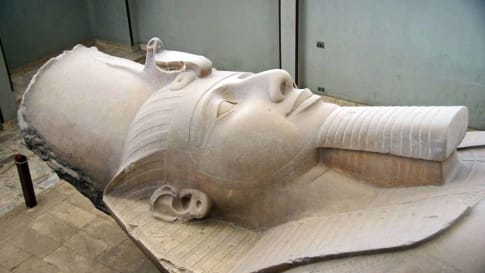
Egyptian linen treasures
Egyptian linen treasures Egypt has long held a place in the imagination of curious travellers. Many of us were introduced to the stories of pyramids, pharaohs and buried treasure as children, and since then, books…

Nile River Cruise
The Nile River is the longest river in the world at 6695 kilometres long. Flowing from Uganda, through eleven countries, through to Egypt, it empties into the Mediterranean Sea.

Philae Temple
Egypt's Philae Temple is one of the most picturesque in the country and the complex is one of the most fascinating ancient sights in the world.

The Pyramids and the Sphinx
Egypt is home to one of the only remaining wonder of the Ancient World: The Great Pyramids of Egypt. The pyramids are monumental tombs for pharaohs from the 4th dynasty and relics of Egypt's Old Kingdom era, constructed around 4,500 years ago.
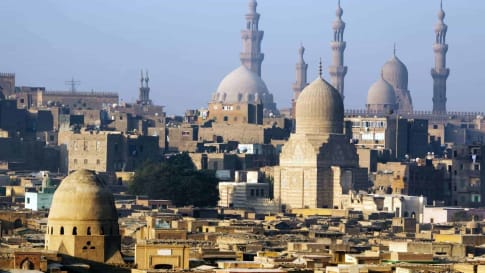
From Cairo to the NAC: Egypt Builds a New Capital City
From Cairo to the NAC: Egypt Builds a New Capital City On July 11, 2018 Egyptian President Abdel Fatah al-Sisi laid the first stone of what was to become Egypt’s new capital. The city is…
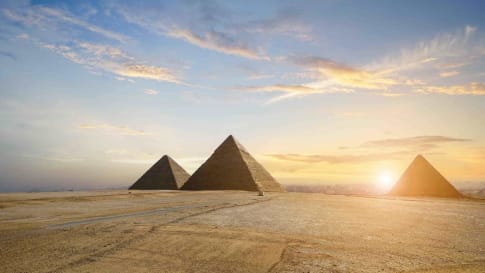
Discover Egypt with ten great books
Discover Egypt with ten great books Egypt captures the imagination and heart of us all. It is often our introduction to ancient history, and the mysteries of the pyramids and myths of pharaohs remain alive…



